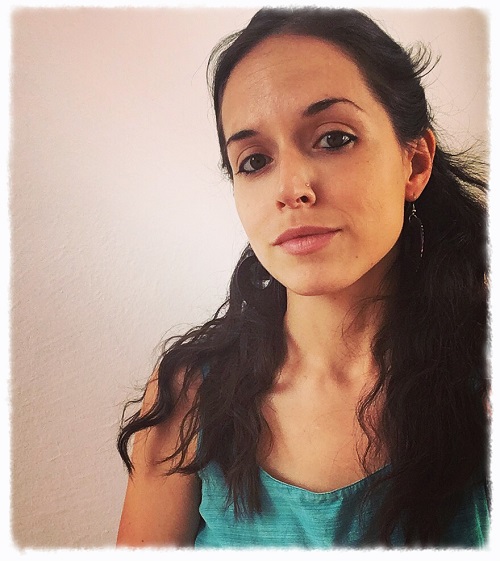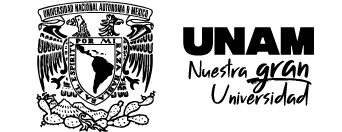Las versiones al español son de Ezequiel Zaidenwerg.
Primeras lecciones de cuidado
Una alubia en un frasco,
una explosión
de pececitos, una lagartija
que era de toda el aula y que dormía una noche
en cada casa hasta que la
sortearon. Las tiras de neón del uniforme de una agente de tráfico que medía un metro
veinte,
“tan sólo di
que no”,
etcétera,
un bebé de plástico
equipado con un microchip,
perturbadoramente
realista en su peso y su forma de puntuar la
angustia.
Fue el año de las dieciséis amenazas
de bomba,
el año en que me negaba a comer a menos
que estuviera sola, o sea
de noche, tarde; el pollo, frío, grasiento contra el puño
cerrado, y el helado de vainilla
en un vaso de
chupito.
Después fumé un porrito o dos, volví a casa marchando
a los tumbos por la nieve,
leí un poco de Kierkegaard en la escuela,
quemé unas galletitas en un hornito eléctrico en la otra punta
del mundo, tomé sorbitos de café
amargo
en el velorio de un
desconocido,
pasé por muchos puestos de control, me despedí
llorando en una catramina,
legado de un monitor catalán
de derechos humanos, reducida a mi mínima expresión una vez
más
hasta que al fin paré. Y
ahora
estoy sembrando mi vida en el lecho de un lago,
rodeada de volcanes,
con pancita, sintiéndome
querida, precisamente en medio de un estudio planetario sobre el
aire,
y dejo que el pan
leve
y que haga de sí mismo un recipiente.
Pan significa
aliento, significa placer, no significa nada, está perfecto así y es
suficiente:
no sabría muy bien qué más
decir
salvo que, bueno, es
una alubia
en un frasco.
Early Lessons in Care
A bean in a cup,
a burst
of guppies, a lizard
shuffled around the class for household overnights,
then raffled
off. Neon sashes for a four-foot traffic
cop,
just say
no,
et cetera, a plastic infant
embedded with a microchip,
disturbingly
realistic in its weight and punctuation of
distress.
It was the year of the sixteen bomb
threats,
the year I wouldn’t eat unless I was
alone, which meant
late at night, cold chicken greasing the heel
of my fist, vanilla
ice cream in a shot
glass.
Then I smoked a joint or two and trudged home in
the snow,
read some Kierkegaard for school,
charred snickerdoodles in a toaster oven on another edge
of the world, sipped
bitter
coffee at a stranger’s
funeral,
slunk through checkpoints, wept
goodbye in the rattletrap
bequeathed by a deported
Catalan human rights monitor, paring myself
down
again until I stopped. And
now,
sowing my life into a lakebed,
volcano-flanked,
belly soft,
loved, smack-dab in the middle of a planetary study on
air,
I let the bread
grow
in the bowl of itself.
The bread means
breath, means pleasure, means nothing, perfect, just
enough—
I don’t even know what else to
say
about it, okay, it’s
a bean
in a cup.
Latitudes
Viví en tres estados nación suicidas,
si contamos el país en que me fabricaron, y sin contar
el otro que borraron de los mapas
pero que se muere por vivir, y vive; por lo tanto,
y si bien los casos no son muchos,
ese anhelo triunfante por autodemolerse, según parece,
al menos, sigue vivo y coleando por estas latitudes, el museo-
monumento-construido-encima-de-las-ruinas-
de-pueblo-masacrado que es emblema de lo que considero
que es la ciudadanía, o al menos lo que está
en la efigie del billete. “¿Lo mataste
tú mismo?”, le preguntó a un milico uniformado
un patriota lleno de prendedores, tendiéndole la mano por el pasillo,
en mi primer vuelo de cabotaje al volver de Palestina, el día
que tiraron el cadáver de Bin Laden al mar. Todo imperio, exultante,
se encabrita anticipándose a negar sus propias ganas
de matarse, eso es lo que pienso, pero yo
que sé, que soy tan solo una persona cuya sangre
tiene los dos sellitos falsos de un filósofo marxista
y un agente de la CIA, y ésos son sólo dos
de los varones de la familia.
Parts
I’ve lived in three suicidal nation-states,
counting the one I was made in, not counting
the country choked off from the maps
but which wants to live, and does, and so,
admittedly, my sample size is small, but still,
the triumphant self-demolishing urge does seem,
you know, alive and well around these parts, the general
memorial-museum-erected-atop-the-ruins-
of-massacred-village vibe that characterizes
what I’ve come to understand as citizenship, or at least
the embossing on the bill. “Did you kill him
yourself?” grinned a bebuttoned patriot
on my first domestic flight once back
from Palestine, extending a hand across the aisle,
as it were, to his neighbor’s fatigues the day
Bin Laden tipped into the sea. Every empire
rears up in the anticipatory exultation of denying
it’s offing itself, is what I think, but what
do I know, I’m just one person whose blood is stamped
with the concurrent tin-foil seals of a Marxist philosopher
and a CIA operative, and that’s
just two of the men.
Nadie, absolutamente nadie:
Los acantilados
se ven en cualquier parte
que estés de este pueblito,
oxidados de sol,
es una especie de tensión sexual tenerlos siempre ahí para mirarlos de
costado,
siempre vas hacia ellos
sin importar adónde te lleven tus zapatos de llanura
y tu bolsita con bananas mínimas,
el ardor de las lentes
de contacto
contra tus globos oculares, y los acantilados que aceptan
todo el día la luz sin
condiciones, al parecer sin nunca haber tenido que pelear
ninguna guerra,
ni lastimar a nadie en busca de poder,
pero al final quién
sabe, mucha gente tal vez te mire un
segundito
y suponga lo mismo, aunque quizá
justo por lo contrario, menuda
como eres.
Aquí
ya es temporada de frutas como flautas
que se pueden comer, de un alacrán
bebé aferrado a un rollo de papel higiénico,
de lo que con sus propias sombras esculpen los acantilados
antes de que las mate
el sol; y si ya no
pudieras hacer nada de esto nunca
más, mover las piernas o cantar, coger o recoger
semillas de amaranto de la mesa, si tuvieras que renunciar a todo salvo a una sola cosa,
elegirías hablar,
te hablarías a ti
de todo esto.
No One, Absolutely No One:
The cliffs,
you can see them
no matter where you are in this town,
sun-rusted,
almost a sexual tension in having them there always to look at
sidelong,
you’re bound for them
wherever you’re walking with your flatland shoes
and a bag of tiny bananas,
the chafe
of your contact
lenses against the ball of your vision, the cliffs accepting
light all day long on no
conditions, seeming to have fought
no wars,
not to have hurt anyone in pursuit of their power,
but what do you
know, many people might give you a quick
once-over
and assume the same, if
for entirely opposite reasons, small
as you are.
Here
there’s a season of fluted flowers
that can be eaten, a baby
scorpion pinned to a roll of toilet paper,
a thing the cliffs hew with their own shadows
before death
by sun, and if
you couldn’t do any of it ever
again, move your legs, sing, fuck, brush stray amaranth
from the tabletop, if you had to give those up and keep just one,
you would talk,
you would tell you
all about it.
Poema con cosas y dos versos de James Tate
Hoy soy un pellejo
con plumas y una mella
en el muslo, un higo iodado,
el bulboso explayarse
de una suculenta rendida al sol:
y quiero estar acá, cosa
entre cosas, empantanada
en todo lo que somos.
Grulla de mí, estirándome,
escucho lo que pasa
por mi cuello, los ruidos
ecolocalizados de mi materia en
su oscuridad.
¿La oscuridad de quién? (Vivo
para estas cosas). Hoy
me desplomo, caigo
rendida, enamorada,
e igual de tonto creer
que nos vamos a salvar
que lo contrario.
Stuff-Poem with Two Lines by James Tate In It
Today I’m a pelt
with down and a nicked
thigh, an iodined fig,
the bulb and splay
of a sun-tanked succulent—
I want to be here, thing
among things, swamped
in all of us.
Craning myself,
I hear the stuff
in my neck, the echolocated
rustle of my matter in
its dark.
Whose dark? (I live
for this shit.) Today
I am falling, falling,
falling in love, and it’s
as foolish to be sure
we’ll be spared as it is
to think the opposite.

Autor
Robin Myers
Nueva York, Estados Unidos, 1987. Poeta, traductora y ensayista. Su obra poética ha sido traducida enteramente al español y publicada en México, España y Argentina en los volúmenes titulados Amalgama (2016), Lo demás (2016), Tener (2017) y Poquita fe (2023).


